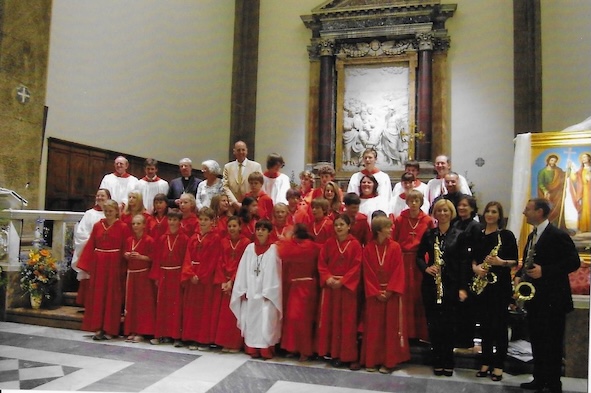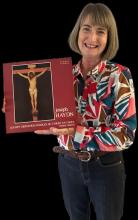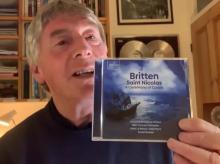Desert Island Discs - Margaret Lawrence
I have a very eclectic taste in music and have had to leave out Edith Piaf, trad Jazz, Taverner and Cleo Laine among others. Here are my eight…
1. Brahms Lullaby. Both my mother and my grandfather played the piano and he had a music book with 100 songs. This was one of them…..sung many times. https://www.youtube.com/watch?v=t894eGoymio&t=1s
2. Chopin Fantasie Impromptu in C sharp minor, the first record I was given was Semprini plays Chopin. https://www.youtube.com/watch?v=d7V_nI_RUQw&list=RDd7V_nI_RUQw&start_radio=1
3. Elegy by Thalben Ball. Played at our wedding! It was the organist’s favourite. I have asked for it at my funeral. https://www.youtube.com/watch?v=5bYgPbMlKcQ&list=RD5bYgPbMlKcQ&start_radio=1
4. It has to be Mozart - Un Aura Amorosa from Cosi fan tutte sung by the Swingle Singers arranged by Jonathan Rathbone who was one of the Musical Directors at Barnet Choral when I sang with them. https://www.youtube.com/watch?v=zndn2pw__FY&list=RDzndn2pw__FY&start_radio=1
5. Panis Angelicus. To remind me of our grandson’s solo in Frascati Cathedral pictured here:

on a school trip to Rome. https://www.youtube.com/watch?v=PK3TeWqSAZk&list=RDPK3TeWqSAZk&start_radio=1
6. Anything by Nat King Cole…maybe ‘When I fall in love’ https://www.youtube.com/watch?v=GfAb0gNPy6s&list=RDGfAb0gNPy6s&start_radio=1
7. Ubi caritas by Durufle …. The original version….well I am an alto! https://www.youtube.com/watch?v=l1BTWCpEFRQ&list=RDl1BTWCpEFRQ&start_radio=1
8. O magnum mysterium Morten Laurisden ….I only got to know Laurisden about 10 years ago at the same grandson’s carol concert at school and have fallen in love with his music. So good to listen to and to sing. https://www.youtube.com/watch?v=7KvrbYZB2vY&list=RD7KvrbYZB2vY&start_radio=1
 Royston Choral Society
Royston Choral Society









